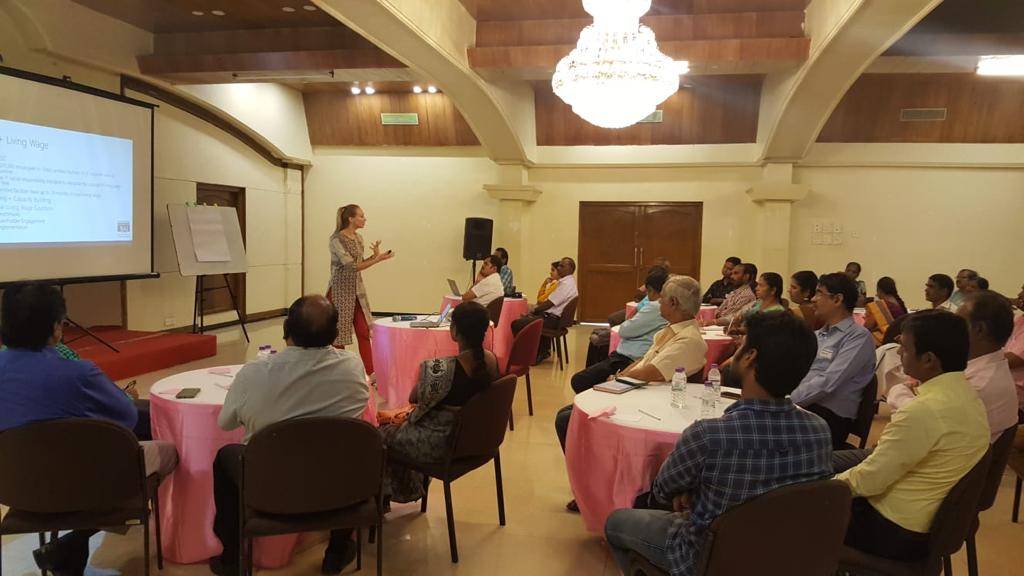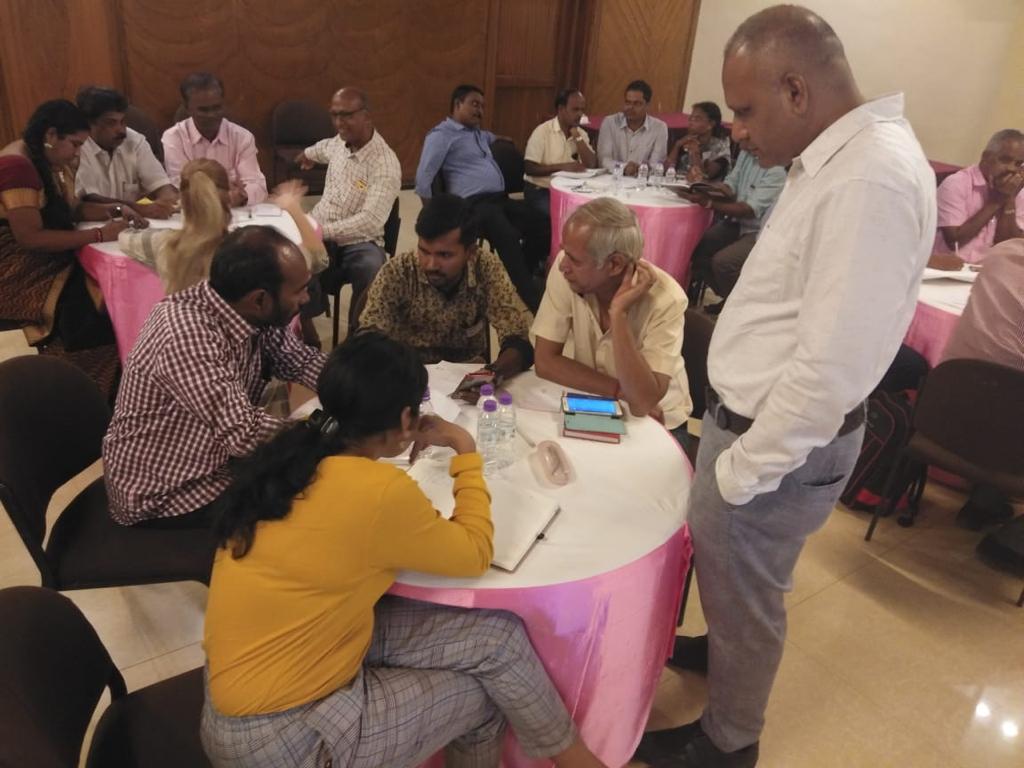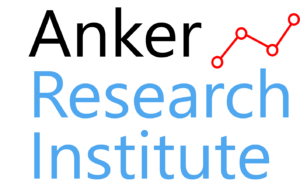Garment Industry in Tiruppur, Tamil Nadu, India
The information contained in this case study has been supplied by Social Accountability International (SAI)
Project Name
Living Wage Multi-Stakeholder Initiative in Tiruppur
Project Summary
Tiruppur, Tamil Nadu is a major knitwear-producing city in Southern India. Tiruppur has a long history of tense relations between the key stakeholders for wage issues—government, employers, and unions. In 1990, the groups achieved a Tripartite Agreement on Wages, designed to guarantee workers earn at least the minimum wage even in the absence of government enforcement. After years of contentious, but continuing negotiations, the government pulled out of the Tripartite Agreement in 2015. Adding to the confusion, in 2016 the government updated minimum wages for hosiery to a rate much lower than the minimum for tailoring and lower than the rates negotiated by industry and unions.
Diverse modes of employment (such as temporary and piece-rate work), complex and discordant reporting requirements, and widespread legal uncertainty (e.g. the distinction between hosiery and tailoring activities) have kept wages in Tiruppur far below those required for a decent standard of living. This is despite an official commitment from Tiruppur’s earliest minimum wage law, passed in the 1940s, which envisioned a living wage for all workers in the city.
The wage situation in Tiruppur is important for GLWC as it is a key manufacturing hub in India, and it is of particular interest for SAI as the location of about 250 SA8000®-certified facilities. In 2016, SAI launched an initiative to convene stakeholders in Tiruppur with a goal to facilitate collaborative solutions to advance the standard of living for all workers in the region. The project brings together representatives from government, industry, unions, and civil society for multi-stakeholder consultations that identify practical steps towards achieving the ambitious long-term goal of a living wage for all workers in Tiruppur.
Project Partners
The project is being implemented by Social Accountability International (SAI) – a founding member of the Global Living Wage Coalition (GLWC).
Project Goals
- Build space for dialogue among all relevant stakeholders
- Advance wages in Tiruppur
- Achieve a living wage for all workers in Tiruppur
Stakeholder Engagement
Some representative groups and organizations that have participated in the stakeholder consultations so far include:
- Civil Society Organizations: Fairtrade International, Ethical Trading Initiative, Fair Wear Foundation, Peace Trust, SAVE
- Industry Association: Tiruppur Exporters Association
- Brands: Representatives from several major global corporations including a Swiss retail giant, and major apparel brands from the UK, Sweden, and France
- Auditing Firms: RINA, BSI, Bureau Veritas
- Unions: CITU, INTUC, AITUC, LPF
- Employers: 30+ SA8000®-Certified Facilities
- Government: Commissioner of Labour in Tamil Nadu
Project Progress/Results
Timeline
- 2016 – Conducted initial living wage research in Tiruppur using Anker methodology
- 2017 – Held stakeholder consultation and validation meetings with government, industry, workers, CSOs, and auditing sector on living wage calculation
- 2017–2018 – Conducted additional research on issues surrounding living wage in Tiruppur based on stakeholder conversations
- April 2018 – Published living wage benchmark for Tiruppur and held first multi-stakeholder workshop on implementation strategies
- November 2018 – Held second multi-stakeholder workshop on living wage implementation strategies

Results
Wages have long been a contentious issue in Tiruppur, with the three main parties—government, employers, and workers—often at odds. At the time this pr
oject began, several employers were actively challenging the government in court over the applicable minimum wage and the government had recently pulled out of the 25-year-old Tiruppur Tripartite Agreement on Wages, leaving workers vulnerable in a weaker bipartite agreement with employers.
Despite these historic and ongoing tensions, SAI has convened representatives from all relevant stakeholder groups in productive dialog around wages. Representatives from government, employers, and unions hold different opinions on the issues and have different understandings of their responsibilities when it comes to improving wages, but through multi-stakeholder workshops these groups have come together in conversation and committed to continue working together toward a shared goal of achieving a living wage while propelling competition in Tiruppur.
Outputs
- Landscape analysis of challenges to achieving a living wage in Tiruppur
- Locally and collaboratively developed strategy identifying four pathways to improve wages:
- Sustainable business partnerships
- Improving workers’ awareness of their rights and enhancing workers’ skills
- Aligning productivity improvements with wage growth
- Government engagement
- The multi-stakeholder group—comprised of government, industry, unions, CSOs, brands, and the auditing sector—collaboratively developed and agreed on a mission and vision statement for the project:
- Mission: Stakeholders work together to advance sustainable business and lift the living standards of workers.
- Vision: Tiruppur is a global model of inclusive growth: thriving workers and thriving business.
Next Steps
SAI is actively seeking representatives from all stakeholder groups to participate in workshops in 2019. The next conversations will focus on forming working groups for each of the four strategic pathways identified in earlier workshops:
- Sustainable business partnerships
- Improving workers’ awareness of their rights and enhancing workers’ skills
- Aligning productivity improvements with wage growth
- Government engagement






